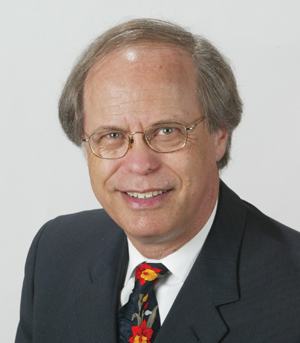The debate over governance reform rumbles on at the Law Society of Upper Canada even after the province enacted legislation enshrining term limits for benchers.

At Convocation on May 27, critics turned what should have been a routine debate on new bylaws into a protracted affair. Several benchers highlighted what they see as loopholes and deficiencies in the provisions for grandfathered life benchers.
Thomas Heintzman, chairman of the governance task force, came under criticism for rushing the changes through.
Heintzman admitted many of the concerns raised warranted a closer look but insisted his proposed changes should go ahead regardless because they reflect the policies passed by Convocation in December.
“I think it’s far better to have the matter dealt with, have the bylaw enacted,” he said. “I think this should be looked at seriously and I undertake to do so in my capacity to look at this issue immediately, together with the others that we have addressed today.”
That approach angered Bencher Bob Aaron, who came out swinging against it. “Even the chair of the committee has admitted that we’re getting it wrong,” Aaron said. “What we’re being asked to do today is a horrendous precedent. Let’s pass the wrong bylaw. It’s bad policy, it’s not transparent, it’s dumb.”
The bylaw amendments, which eventually passed 37-11 with two abstentions, filled in the blanks on term limits as well as the roles of grandfathered life benchers and the newly created class of emeritus benchers.
Queen’s Park has already done its part by passing a bill containing amendments to the Law Society Act last month.
Term limits will take effect in stages, with current benchers who have served fewer than 16 years entitled to stand again at the next election in 2011. After that, benchers will only be allowed to serve for 12 years.
But Aaron, who was first elected in 1995, suggested benchers elected in that year could resign days before the next election to stay under the 16-year cut-off and remain eligible to run.
“There are many ways in which these bylaws can be manipulated,” said Heintzman. “We did as a committee the best job we can do to put the principle in the bylaw. If that sort of thing occurs, Convocation is going to have to deal with it at the time. I wouldn’t call it a loophole.”
Aaron disagreed. “I would call it a defective bylaw,” he retorted.
Current life benchers, former treasurers, and former attorneys general grandfathered under the new bylaws can have their right to vote and participate in debates stripped from them if they fail to attend four consecutive Convocations but may also win them back by improving their attendance.
Harvey Strosberg, a former treasurer, is worried that kind of treatment could stigmatize benchers with good reasons to miss meetings.
“I know that no one intends to put them in a corner with a cap, facing their portrait,” he said. “But it seems unnecessary to deprive them of the right to participation in debate.”
Heintzman agreed to look into Strosberg’s concerns but said he was reluctant to address them immediately. Instead, he stressed that the amendments he presented were the product of a rigorous process.
“It’s a good point but it’s not an easy point, and we wrestled long and very tediously with how best to structure these principles,” he said.
The functions of the new emeritus benchers, the honourary title given to elected benchers who reach the 12-year limit, irked another former treasurer, Sydney Robins.
They can sit on hearing panels, appeal panels, and standing committees but can’t vote at Convocation. No special provisions exist for emeritus benchers who once served as treasurer, effectively cutting them off from the body they once headed, Robins said.
“To come back here and not be present in Convocation where decisions are made, where the action is, is not something that would be very desirable, and I don’t think it’s in the best interests of Convocation,” Robins said.
“I don’t know anyone, any organization who has treated, in my view, a current treasurer, an immediate past treasurer, an immediate past chair, immediate past president, in as what I consider a shabby a way as that.”
Robins also suggested the timing of the election for treasurer could result in mandated one-year terms as opposed to the customary two years.
That’s because elections occur in the first and third years of four-year bencher terms, meaning benchers with 11 years of experience could become treasurer and then have to step down from the post just a year later when they reach the 12-year limit. Heintzman admitted the task force had missed that possibility in its attempts to account for every permutation.
“I would be very sympathetic to that amendment being made, but again, I would have to think it out. I wish I had heard it earlier.”
Bradley Wright, a bencher from Ottawa, also suggested setting the new bylaws aside until the problems are ironed out.
“There are numerous flaws with this bylaw, and the defence of it is that the task force worked very hard on it,” he said. “That’s an insufficient defence.”
Treasurer Derry Millar intervened testily on a number of occasions as some benchers returned to arguments made in the December debate against the reforms.
“I appreciate there are people in the room who voted against these reforms, but we are not revisiting the principle adopted by Convocation today,” he said.

 At Convocation on May 27, critics turned what should have been a routine debate on new bylaws into a protracted affair. Several benchers highlighted what they see as loopholes and deficiencies in the provisions for grandfathered life benchers.
At Convocation on May 27, critics turned what should have been a routine debate on new bylaws into a protracted affair. Several benchers highlighted what they see as loopholes and deficiencies in the provisions for grandfathered life benchers.